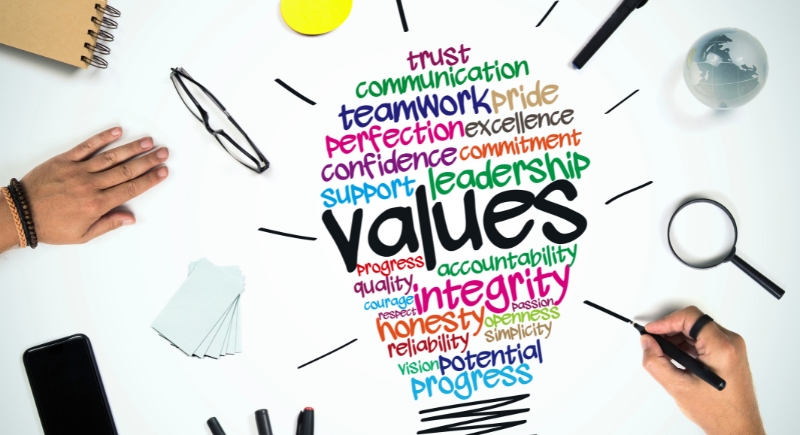6 Things No One Tells You About Going From Middle Class To Upper Class
Moving up from the middle class to the upper class sounds like a clear win, but the reality is more complicated. It’s not just about better things or a bigger paycheck. The shift brings subtle changes that catch a lot of people off guard once they’re living it.
Increased Responsibility and Pressure

Credit: pexels
Moving into the upper class often brings bigger stakes. Wealth management, business obligations, and maintaining assets become part of daily life. With that comes pressure to sustain or grow these assets, which can lead to higher stress levels and even burnout if not carefully managed.
Social Isolation

Credit: pexels
Class mobility can quietly impact your relationships. As lifestyles shift, so do friendships and social dynamics. Those from previous circles might not relate anymore, while upper-class communities can be difficult to break into. This can create a lonely in-between space where building trust or connection becomes harder than expected.
Increased Scrutiny and Criticism

Credit: pexels
People often assume wealth provides freedom, but public judgment tends to intensify. Others may scrutinize how you spend money, parent, or even relax. This visibility—whether on social media or in your local community—can shape how you present yourself and force careful choices about how you live and engage.
Work-Life Balance Challenges

Credit: Getty Images
Getting into the upper class usually involves significant time and mental investment. The demand on personal time increases. That imbalance often means missing out on family dinners, milestones, or rest, even if the financial rewards are substantial.
Fear of Losing Wealth

Credit: 89Stocker
Financial success can introduce new worries instead of easing them. The fear of dropping back down the ladder is real. There’s a persistent concern that everything built could disappear, and that fear can impact everyday decisions.
Challenges With Raising Children

Credit: Getty Images
Raising kids in wealth means more choices—and more pitfalls. Affluent children might grow up insulated from hardship, which could make it harder for them to understand money, responsibility, or empathy. Parents often need to be intentional about creating balance and exposing their children to different perspectives and values.
Change in Personal Values and Lifestyle

Credit: Getty Images
Success can quietly shift what matters. Things once valued for meaning might now be valued for status. Over time, people may notice a gradual shift in identity or struggle to reconnect with past values that once shaped their worldview.
Mental Health Implications

Credit: Peopleimages.com
Despite appearances, wealth doesn’t protect against mental health struggles. High expectations, intense competition, and isolation can all contribute to anxiety or depression. Studies have shown that affluent teens and adults often report higher-than-average levels of psychological distress, driven by both internal and social pressures.
Cultural Disconnect

Credit: Monkey Business Images
Moving up economically often creates a rift between one’s upbringing and current environment. Inside jokes, traditions, and communication styles may no longer fit either world, which makes people feel like outsiders in both their old and new social groups.
Altered Financial Habits

Credit: baseimage
With more wealth, the financial mindset changes dramatically. Instead of saving for emergencies or budgeting groceries, people often focus on optimizing investments, tax efficiency, and generational wealth.
Increased Exposure to Classism

Credit: Getty Images
Ironically, moving into a wealthier class can expose people to subtle and overt classism. Some may be seen as “new money” or as lacking the cultural capital expected in elite circles. At the same time, they may face resentment from those in their original class.
Shift in Social Capital

Credit: Canva
Accessing the upper class changes who you know and who knows you. Networking opens doors to private events, board memberships, and insider deals. However, maintaining those relationships often involves learning unspoken rules, codes of behavior, and expectations that don’t always align with personal authenticity.
Different Educational Expectations

Credit: pexels
Education often becomes a strategic investment rather than a path to stability. Families may prioritize elite private schools, international study programs, and extracurricular portfolios designed to impress Ivy League admissions. This high-pressure environment can shape children’s identities and life paths more than many parents initially expect.
Changes in Consumption Patterns

Credit: DragonImages
The way people spend money changes in subtle ways. Rather than showing off with flashy purchases, many in the upper class adopt status symbols, like investing in rare wines, bespoke services, or sustainable travel. This type of consumption signals wealth to those “in the know” without being obvious.
Navigating Complex Schedules

Credit: Getty Images
Adjusting to upper-class life often means managing a demanding schedule filled with social obligations, philanthropic events, and exclusive gatherings. For newcomers, juggling these commitments alongside personal and professional responsibilities can become overwhelming and may require new strategies for prioritizing time and energy.